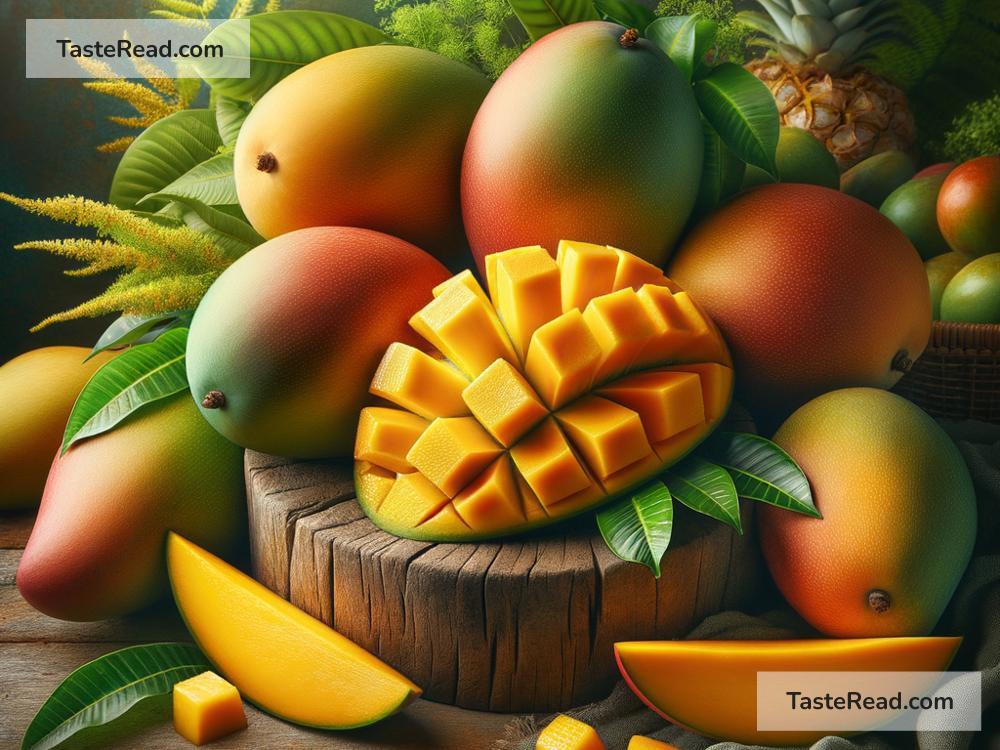What Makes Mangoes the Most Loved Fruit Worldwide?
Mangoes are often called the “King of Fruits,” and for a good reason! This juicy, sweet fruit is loved by millions of people across the globe. Whether eaten fresh, blended into smoothies, or used to flavor desserts, mangoes are an undeniable favorite for people of all ages. But what exactly makes mangoes so special? In this article, we’ll explore why mangoes are one of the world’s most beloved fruits.
1. A Unique Taste That Everyone Loves
One of the biggest reasons mangoes are so popular is their irresistible taste. Mangoes have a flavor that is both sweet and slightly tangy, making them a perfect treat for any occasion. The subtle blend of sweetness and acidity gives mangoes their unique profile, often described as a mix of peach, pineapple, and citrus. Depending on the variety, their taste can range from sugary to mildly tart, ensuring there’s a mango for everyone’s palate.
There are hundreds of varieties of mangoes worldwide, each with its own unique flavor and texture. Some mangoes are firm and less sweet, while others are incredibly juicy and melt-in-your-mouth. From Alphonso mangoes in India (famously called the “King of Mangoes”) to Ataulfo mangoes in Mexico, these varieties of mangoes ensure that wherever you live, you’re likely to find a type you’ll adore.
2. A Feast for the Senses
Mangoes aren’t just delicious—they’re visually appealing, too. Their vibrant orange and yellow flesh is a feast for the eyes and often associated with warmth and tropical sunshine. On the outside, mangoes range in color from bright green and golden yellow to red and even purple. Their colorful appearance makes them a standout addition to salads, desserts, and exotic dishes.
In addition to their taste and appearance, mangoes have a delightful aroma. They emit a sweet, tropical fragrance that can instantly lift your mood. This combination of taste, scent, and color makes mangoes an all-around sensory experience that people love.
3. Rich in Nutrients and Health Benefits
Mangoes are not only delicious; they’re incredibly nutritious. Packed with vitamins, antioxidants, and fiber, mangoes are a great addition to a healthy diet. They are especially rich in vitamin C, which boosts immunity, and vitamin A, which is essential for good vision and healthy skin. Mangoes also contain potassium, which helps regulate blood pressure, and dietary fiber, which aids digestion.
Their antioxidants, such as beta-carotene and polyphenols, help fight inflammation and protect the body from harmful free radicals. For people looking for a sweet treat without compromising their health, mangoes are an excellent choice.
4. Versatility in Cooking and Snacking
Another reason mangoes are cherished worldwide is their versatility. This fruit can be enjoyed in countless ways, both raw and cooked. Bite into a fresh, ripe mango for a healthy snack, or slice it up to add to your breakfast cereal or yogurt bowl. It can also be blended into smoothies, pureed for mango juice, or diced as a topping for pancakes or ice cream.
Mangoes are often used in savory dishes as well, especially in tropical cuisines. In India, unripe, green mangoes are used in chutneys and pickles to bring a tangy punch to meals. Mangoes are also a key ingredient in Thai mango sticky rice—a dessert adored by people worldwide.
In addition, mangoes pair well with other fruits, spices, and proteins. They’re fantastic in fruit salads and salsas, and they complement spices like chili, lime, and mint, creating complex and delightful flavor combinations.
5. A Fruit with Cultural Significance
Mangoes aren’t just a tasty treat—they hold cultural significance in many parts of the world. In countries like India and the Philippines, mangoes are considered symbols of prosperity and love. They are often exchanged during holidays and special occasions. In Hindu mythology, mangoes are said to be the favorite fruit of Lord Ganesha, and they appear in traditional art and rituals.
Their global popularity extends to art, literature, and pop culture. For example, mango trees are often celebrated in poetry and folklore, and mango-flavored products—from candies to perfumes—are found everywhere.
6. Easy Availability and Worldwide Appeal
Thanks to modern farming and global trade, mangoes are widely available year-round in supermarkets and local markets. While mangoes originated in South Asia over 4,000 years ago, they are now grown in tropical and subtropical regions worldwide, including countries like Mexico, Thailand, Brazil, and Kenya. This global cultivation means people all over the world can experience the delight of mangoes no matter where they live.
Conclusion: A Universal Favorite
Mangoes are loved worldwide because of their unique combination of taste, color, aroma, and versatility. Their rich cultural history and immense health benefits only add to their charm. People enjoy mangoes in countless ways, making them a staple in homes, restaurants, and markets across the globe.
Whether you’re savoring a mango on a warm summer afternoon, sipping on mango juice, or indulging in a mango-based dessert, it’s easy to see why this fruit has captured the hearts of so many. Truly, mangoes deserve their crown as the “King of Fruits”!


